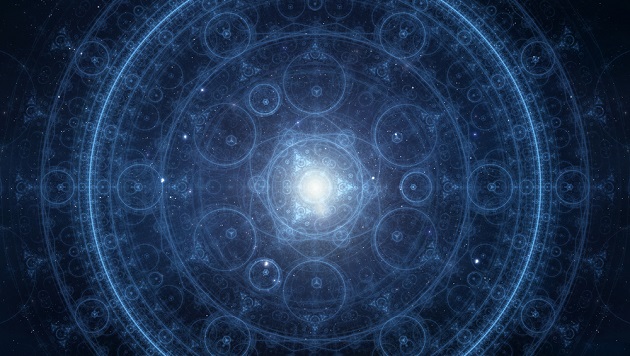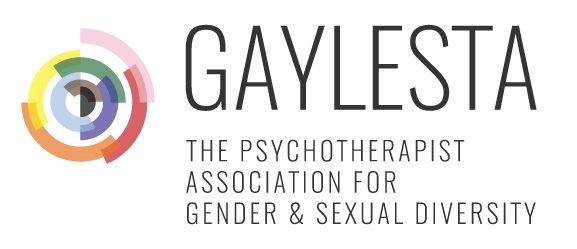“We but mirror the world. All the tendencies present in the outer world are to be found in the world of our body. If we could change ourselves, the tendencies in the world would also change. As a man changes his own nature, so does the attitude of the world change towards him. This is the divine mystery supreme. A wonderful thing it is and the source of our happiness. We need not wait to see what others do.” — Mahatma Gandhi
In Part 1 of this article we explored the fundamental mechanics of astrology, and implications for global healing. Now we will see how astrology may be used individually, for self-reflection, healing, and growth.
Archetypes comprise the language of the psyche. They are the language of the unconscious mind, dreams, and the collective unconscious. Therefore, astrology speaks directly to a deep part of us, and the only translation that needs to occur is for the benefit of the conscious, rational mind; in other words, making sense of the symbols. The necessity of interpretation, far from implying a false or meaningless system, allows for individualization of meaning. The paradoxical nature of the archetypes requires it; all profound truths operate this way. This also encourages movement from objective, concrete, either/or thinking toward a greater capacity for subjective, abstract, ambivalent (or multivalent) conceptualization. The uncertainties of life become less anxiety-provoking, because certainty becomes both more elusive and less necessary.
Most theories of psychology acknowledge that the psyche is not a monolithic entity, that it is comprised of different parts. There have been many names for them, from Freud’s id, ego, and superego, to Humanistic-Existential Psychology’s subpersonalities, or simply parts, to neurobiology’s model of the triune brain. Whatever the model, each part seems to have different needs and motives—and they often don’t agree. The ego problematically tries to compromise and synthesize to provide a coherent and unified façade (what we generally consider to be our self or identity), but upon inspection, it is merely another piece of the larger whole that has its own agenda. Astrology gives another systematic definition for the basic composition of the psyche. Each planet reflecting a part of us, our Selves reflected in the cosmos. Mars, our passion, our desire to get ahead, the way we proceed and/or push away; Saturn, the voice of caution, maturity, and practicality; the Sun, our ego that wants to illuminate, to be recognized, and create. The birthchart shows our starting point, our baseline, our soul in broad strokes. As we come to see these symbols as parts of ourselves, and work out how we individually embody them, we come to know ourselves. And, as with all true understanding, this awareness leads to compassion. Compassion for a soul that could exist no other way, yet has great freedom and potential.
One of the main functions of depth psychotherapy is to make the unconscious more conscious. The more we become aware of the myriad parts and processes that exist within us, the less we are at odds with ourselves. Since each planetary principle has light and shadow manifestations, we can recognize the shadow and choose a lighter path, within the same archetype—another choice still syntonic with our nature. We may initially set a course from shadow to light, from undue suffering to self-esteem, creativity, and empathy; but we also recognize how connected light and dark are, and that our happiness comes not from avoiding and rejecting the shadow. Our true power and purpose comes from accepting the parts we deemed unacceptable and understanding their roles and potentials with equanimity.
Astrology also expands our awareness beyond ourselves. We see ourselves reflected in the cosmos. The rhythms of our lives are plotted out within the inexorable movement of nature. Transience is a constant, we do not need to worry about the current state of things becoming permanent. This serves to build trust in the larger cosmic scheme, and lessens the pressure and anxiety of sole responsibility for the outcome of our lives. At the same time that our lives can be thematically predicted, we have a wide breadth of freedom in which to engage with those themes: selfishly and/or compassionately; famously, infamously, or privately; with curiosity or disinterest. This gives us a way to engage with the tension between actively determining our own course and accepting our current circumstances.
As we know from psychology, the parts of ourselves that we disown and repress we are bound to encounter in others and the world; this is the phenomenon of projection. With astrology, we can understand the timing of when we may have to deal with particular themes. We may not be able to predict concrete occurrences (though some astrologers would disagree), but we can say what periods of life will be ripe for solidifying plans, contemplating hopes and dreams, practicing diligence, or reinventing one’s identity, just to name a few examples. From there we have a chance to consciously do the work that’s asked of us and lessen the chance of being caught unaware by our circumstances.
In this way astrology can be a contemplative practice. Like other mindful and/or spiritual practices, the goal with astrology is to reduce our resistance to the flow of life. It’s not to get rid of pain, or escape and find a life of bliss—but as we make room to witness the unfolding of our lives, suffering is inevitably reduced and a more peaceful sense of security grows.
But don’t take my word for it… I encourage you to get to know these symbols for yourself, and see what parts they play in your life. If you work with an astrologer, let them help you discover your chart, and be wary of dogmatic interpretations. Your chart is a reflection of you—if you don’t recognize yourself, you need a different translator.








Reblogged this on Lost Dudeist Astrology.